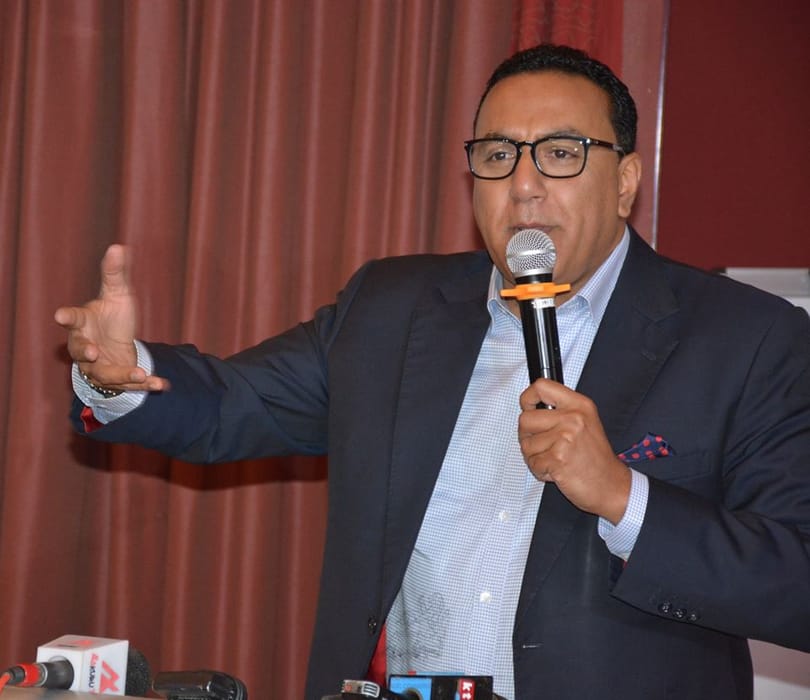- The Kenya Cabinet Secretary for Tourism and Wildlife, Najib Balala, has called on wildlife and conservation sector stakeholders to work with the government to enhance public-private partnerships in curbing human-wildlife conflicts.
- “Mitigation measures are short term. The dialogue needs to dive deeper in terms of financing, mapping, and taking stern but crucial decisions for the conservation of our wildlife. Let the global community fully support the elephant conservation efforts in word and in kind,” noted Balala.
- The CS made the remarks yesterday during a webinar that saw the screening and discussion of ‘Living on the Edge’, a documentary film by Black Bean Productions that highlighted the plight of Africa’s human- Elephants crisis.
The webinar, moderated by Elephant Protection Initiative’s Foundation (EPIF) Director of Government Relations, Dr. Winnie Kiiru, featured dialogues by eminent wildlife and conservation policy-makers, experts, investors and regulators who included:
- Prof. Lee White, CBE: Minister of forests, Oceans, Environment and Climate Change, Gabon
- Greta Lori: Director of Programme Development, EPIF
- Grant Burden: Special Adviser on human-elephant conflict, EPIF
Speaking during the webinar, Prof. White said climate change is affecting elephants’ population making them leave their habitat to go look for food in human settlements.
Grant Burden on his part, stressed on the need to involve local communities when discussing about long-term solutions for human-wildlife conflicts.
Building on Mr. White’s point, Greta Lori reiterated on how human, agricultural, industrial, and climatic change affect wildlife, and the need to define new ways that we can peacefully coexist with them.
CS Balala stressed on the matter of closing Ivory markets in the European Union and Japan because saying the availability of these markets is the greatest threat to conservation of elephants.
“In 2020, 0 rhinos and 9 elephants were poached in Kenya. This is a great step in conserving our wildlife. However, we are losing more animals to human-wildlife conflict than poaching. We therefore need to address the issue now or we will lose the goodwill of the people which would be disastrous to Elephants conservation,” added Balala.
The CS said, when we lose the goodwill of the people, then the whole conservation agenda will be lost. This is why we need to take action now, to protect the people and to invest into human-wildlife conflict mitigation measures that are long term and that make people feel they are protected from wildlife.
IHE Ị GA-Ewepụ na edemede a:
- CS Balala stressed on the matter of closing Ivory markets in the European Union and Japan because saying the availability of these markets is the greatest threat to conservation of elephants.
- The CS made the remarks yesterday during a webinar that saw the screening and discussion of ‘Living on the Edge', a documentary film by Black Bean Productions that highlighted the plight of Africa's human- Elephants crisis.
- This is why we need to take action now, to protect the people and to invest into human-wildlife conflict mitigation measures that are long term and that make people feel they are protected from wildlife.























